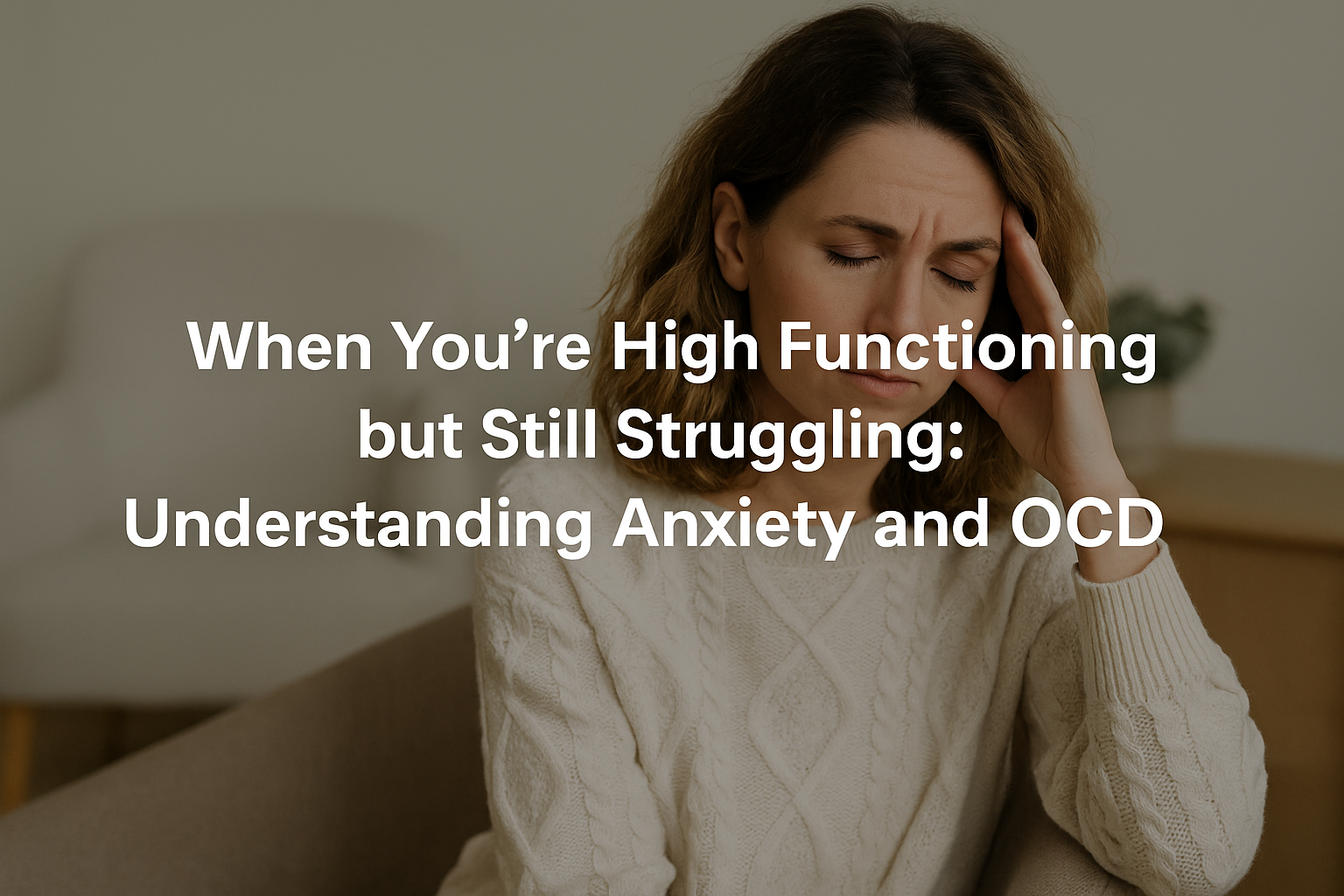Unraveling the Clouds with CBT Tips for Depression

Depression often feels like a shadow hanging over your life, clouding your thoughts and making everyday tasks seem insurmountable. It can manifest as negative thoughts, loneliness, suicidality, fatigue, and a host of other symptoms, leaving you feeling stuck. But there's a silver lining—Cognitive Behavioral Therapy (CBT). CBT shines a light on the connection between thoughts, feelings, and behavior, offering a path to alleviate depression. In this guide, we'll explore practical CBT strategies to help you cope with negative thoughts and enhance your mental health wellness. Whether you're in Indian Land SC or Charlotte NC or anywhere else in the world, these tips are for you.
Understanding CBT's Role in Mental Health Wellness
Cognitive Behavioral Therapy (CBT) is a powerful tool for those grappling with depression. It's grounded in the idea that our thoughts, feelings, and behaviors are interconnected. When one shifts, the others can follow suit. This evidence-based approach aims to identify and change unhelpful thought patterns, fostering a more positive mindset. CBT is not just about “thinking positive”; it’s about reshaping your perspectives to influence your reality. By focusing on the present, CBT provides actionable steps that empower you to take control of your mental health and wellness.
CBT is highly regarded by therapists and mental health professionals for its effectiveness. It's known for producing lasting results, helping individuals manage symptoms of depression effectively. Whether you're dealing with mild symptoms or more severe cases of depression, CBT offers strategies that you can integrate into your daily life. These strategies are designed to break the cycle of negative thinking, leading to improved emotional well-being.
CBT has been recognized as a key component of comprehensive mental health care. In my practice I leverage CBT to provide support and guidance, helping individuals regain control over their lives. It's a beacon of hope, showing that while depression can be overwhelming, it's manageable with the right tools.
Distraction Techniques to Mitigate Negative Thoughts
Negative thoughts have a pesky way of sneaking up on us, often when we least expect them. One effective CBT technique to combat these thoughts is distraction. When you find yourself spiraling, refocus your mind on something else, like a picture on the wall. Describe it in your mind in detail—note the colors, shapes, and any emotions it evokes. This exercise shifts your focus away from distressing thoughts, allowing their intensity to diminish.
Distraction serves as a temporary relief, providing a mental break that can help you gain perspective. It’s about creating a mental pause, an opportunity to reset your thinking. Over time, with practice, this technique can become a powerful part of your coping arsenal. It allows you to distance yourself from the immediate grip of negative thoughts, offering clarity and calm.
For some, keeping a small object or a photograph handy can serve as a quick go-to tool for distraction. It's a simple practice but can be remarkably effective in moments of distress. Remember, the goal is not to ignore your feelings indefinitely but to give yourself the space to process them healthily.
The Three's Rule for Sensory Mindfulness
When depression hits, grounding yourself in the present can be challenging. The Three’s Rule is a CBT technique that uses sensory mindfulness to anchor you in the now. Focus on three of your five senses—sight, touch, and hearing. Identify three things you can see, three things you can touch, and three things you can hear. This exercise engages your senses, drawing your attention away from overwhelming thoughts.
The Three’s Rule is about cultivating mindfulness and presence. By paying attention to your senses, you interrupt the cycle of rumination, bringing yourself back to the here and now. This technique also helps reduce anxiety and stress, which often accompany depressive episodes. It's a reminder that while negative thoughts may be loud, they don’t define your reality.
Engage with this practice mindfully and regularly. It can be incorporated into daily routines, such as during a walk or while enjoying a meal. The more you practice, the more natural it becomes, providing a reliable method to reset and find peace amidst the chaos.
Sitting with Your Thoughts: A Counterintuitive Approach
When faced with negative thoughts, our instinct is often to push them away. Ironically, this can make them more persistent. Instead, try sitting with your thoughts—a practice that may seem counterintuitive. Find a quiet space, set a timer for one minute, and allow yourself to simply observe your thoughts and feelings without judgment. With time, the intensity of these thoughts may decrease.
This method is about acceptance rather than resistance. It teaches you to acknowledge your feelings without letting them overwhelm you. By allowing yourself to feel without acting, you gain control over your emotional responses. It’s a form of exposure therapy, where you desensitize yourself to distressing thoughts, reducing their power over time.
One of my clients, who was struggling with intense emotions, tried this technique and found it incredibly liberating. "Wow, the intensity of my thoughts and feelings decreased," they noted. This practice provided them with a new perspective, helping them manage their depression more effectively. It’s a testament to the power of CBT in fostering emotional resilience.
Hope and Support in Your Journey
Depression can feel isolating, but you don't have to suffer in silence. There is hope, and support is available. In South Carolina and nearby regions, I offer resources and guidance for those seeking to improve their mental health wellness. I provide a safe space where you can explore these CBT techniques and learn more about coping with negative thoughts.
Reaching out for help is a courageous step toward healing. Consider booking a consultation to explore how CBT can be tailored to your needs. Therapy is not just for crisis situations; it’s a proactive step in maintaining mental health. By engaging with a therapist, you gain a partner in your wellness journey, someone who can guide you through the complexities of depression.
Remember, you are not alone on this path. I'm ready to support you. Whether you choose to practice CBT techniques on your own or with a therapist, know that taking action is a powerful step toward reclaiming your life from depression.
Moving Forward with CBT and Mental Wellness
In conclusion, Cognitive Behavioral Therapy offers practical, effective tools for those navigating the challenges of depression. By focusing on the link between thoughts, feelings, and behaviors, CBT empowers individuals to take control of their mental health. The strategies outlined—distraction techniques, sensory mindfulness, and sitting with your thoughts—are just a few ways to cope with negative thoughts and enhance mental wellness.
For those in areas like Indian Land, SC, and Ballantyne, NC, I am here to offer additional support at Dream Yoga and Wellness in Indian Land, SC. Whether you're seeking therapy or simply looking to learn more, a wealth of options are available to aid your journey. Depression is daunting, but it is not insurmountable. You can return to a brighter, more balanced life with the right tools and support.
If you’re ready to take the next step, consider contacting me. I am available on Mondays at Dream Yoga and Wellness in Indian Land, SC, and other days of the week. You can book directly with me by going to the link in my bio or the link below. The path to healing is personal, and no one method fits all. Explore these strategies, find what resonates with you, and continue to seek growth. Your mental health is a priority, and with CBT, you have a powerful ally in your corner.
Emily Pierce, M.S. LPC-A


